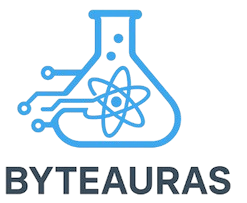In 2025, automation is no longer a futuristic concept—it’s our reality. Whether it’s AI writing articles, robots delivering packages, or machines replacing factory workers, automation is transforming how we work and live.
But with this transformation comes a pressing question:
“Is it ethical to let machines replace humans at work?”
This article explores the moral questions behind automation, how it affects our jobs, and what an ethical future of work could look like.
Understanding Automation: What Does It Really Mean?

Automation refers to the use of technology to perform tasks with minimal human input. It can be mechanical (robots), digital (AI, software bots), or hybrid systems (like smart factories).
Examples:
- Robotic Process Automation (RPA) for handling invoices.
- AI chatbots replacing customer support agents.
- Self-driving cars replacing delivery drivers.
- Algorithms managing investments or hiring decisions.
Why Automation Is Growing So Fast

- Cost Savings: Machines don’t need salaries, sick days, or health insurance.
- Productivity: Automated systems operate 24/7 with fewer errors.
- Innovation: New tech solutions require automation to scale.
- Labor Shortages: In aging populations, automation fills employment gaps.
The Ethical Concerns of Automation
Here’s where it gets complex. Let’s explore the major ethical issues surrounding automation:
1. Job Displacement and Inequality
- Over 800 million jobs could be lost globally to automation by 2030 (McKinsey report).
- Low-skill workers are most at risk—particularly in manufacturing, logistics, and retail.
- Without retraining, automation widens the gap between high-tech workers and those left behind.
Ethical Question: Is it fair to replace workers without offering them a path forward?
2. Lack of Human Judgment
- Machines lack empathy, morality, and context.
- In sectors like healthcare, law enforcement, or social services, human judgment is irreplaceable.
Ethical Question: Should life-impacting decisions ever be made by a machine?
3. Bias and Discrimination in AI
- AI learns from human data—which can include racism, sexism, and other biases.
- Algorithms used in hiring, lending, and policing have already been proven to discriminate against marginalized groups.
Ethical Question: Who is accountable when a biased AI harms someone?
4. Lack of Transparency (Black Box AI)
- Many algorithms are complex and opaque—even developers don’t always understand them.
- If you’re denied a loan or job because of an AI system, you might never know why.
Ethical Question: Do people have the right to understand and challenge automated decisions?
5. Surveillance and Privacy
- Workplace automation tools often include employee monitoring, facial recognition, and keystroke tracking.
- These tools can violate privacy and human dignity.
Ethical Question: How much surveillance is too much?
Automation Can Be Ethical—Here’s How

Despite the risks, automation can be a force for good—but only if handled with responsibility, fairness, and compassion.
1. Retraining and Upskilling
- Invest in education and job transition programs.
- Teach workers future-proof skills: AI oversight, programming, creativity, critical thinking, emotional intelligence.
Example: Amazon’s “Upskilling 2025” aims to train 100,000 employees for higher-paying tech jobs.
2. Human-AI Collaboration
- Use automation to support, not replace, human work.
- Let humans lead in areas needing ethics, empathy, and creativity.
Example: Doctors using AI for diagnosis support—not replacement.
3. Transparent and Auditable AI
- Make algorithms explainable and open to review.
- Adopt global standards for AI ethics and compliance.
4. Worker Representation in Tech Design
- Include workers, ethicists, and community voices in designing automation systems.
- Prioritize human well-being over profit.
5. Government Policy and Regulation
- Enforce ethical tech guidelines and labor protections.
- Tax automation use to fund public training or universal basic income (UBI).
Example: South Korea taxes robots to slow job displacement and fund social programs.
The Future of Work: What Will It Look Like?

By 2030, experts predict:
- 60% of jobs will be partially automated.
- New roles will emerge in AI, sustainability, digital marketing, and mental health.
- Hybrid workplaces with human-machine collaboration will be the norm.
The key is not to resist automation, but to guide it ethically—so it creates opportunity, not destruction.
Conclusion: Ethics Is the Compass
Automation is not inherently good or bad. It’s a tool.
Its ethical value depends on how we wield it—as leaders, businesses, governments, and citizens.
To make automation ethical, we must:
- Think long-term.
- Prioritize human dignity.
- Ensure access to opportunity.
- Hold tech systems accountable.
The future of work is being written today. Let’s write it with integrity.
Disclaimer : This blog is for educational and informational purposes only. It reflects trends and opinions as of 2025. The content does not constitute professional or legal advice. Please consult qualified experts for personalized recommendations.
#AutomationEthics #FutureOfWork #AIandJobs #TechTrends2025 #WorkplaceAutomation #EthicalAI #JobDisplacement #ResponsibleTech #DigitalTransformation #TechForGood#carrerbook#anslation



Leave a Reply